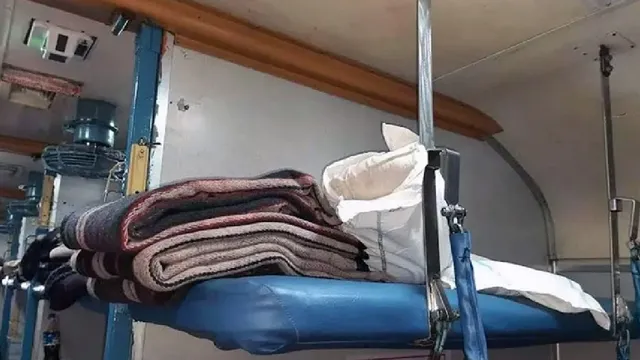- By Raju Kumar
- Thu, 16 Oct 2025 03:07 PM (IST)
- Source:JND
Indian Railway News: The Indian Railways began a blanket cover scheme to improve hygiene and eliminate passengers' concerns about the cleanliness of blankets on trains. Railway Minister Ashwini Vaishnaw inaugurated a pilot project for printed blanket covers on the Jaipur-Asarwa Express, with plans to extend the initiative nationwide if successful.
ALSO READ: Indian Railways Announces Puja Special Trains Via Gorakhpur: Check Full Schedule, Routes And Dates
"Blankets have been used in our railway system for years, but there has always been a doubt in the minds of our passengers. To remove that doubt, a new initiative has been taken today - the introduction of blanket covers," said Railway Minister Ashwini Vaishnaw.
हमारे रेलवे सिस्टम में कंबल का उपयोग वर्षों से होता आ रहा है, लेकिन हमारे यात्रियों के मन में हमेशा एक संशय रहता था। उस संशय को दूर करने के लिए आज एक नई पहल की गई है- कंबल के कवर की शुरुआत: माननीय रेल मंत्री @AshwiniVaishnaw जी pic.twitter.com/fDh0hMjbcp
— Ministry of Railways (@RailMinIndia) October 16, 2025
Vaishnaw, while addressing the railways event at Khatipura Railway Station in Jaipur on Thursday, said several initiatives have been taken by the government to transform the railway sector with a special focus on enhancing passenger amenities.
After inaugurating various projects linked to passenger facilities, he said a new initiative has been started by the Railways to provide a covered blanket to address the hygiene concerns on a pilot basis. The Railway Minister said once this experiment proves successful, it will be implemented across the country.
Railways Plan to Develop 7,000 km of Dedicated Passenger Corridors by 2047
Earlier, on October 15, the Railways Minister, while inaugurating the 16th International Railway Equipment Exhibition-2025, at Bharat Mandapam in New Delhi, announced plans to develop dedicated passenger corridors, engineered for maximum speeds of up to 350 kmph with an operating speed of 320 kmph.
He said that many such corridors will be constructed across the country, forming part of the Government’s Viksit Bharat vision, which targets the development of around 7,000 km of dedicated routes by 2047. These corridors will be equipped with indigenously developed signalling systems and modern Operations Control Centres (OCCs).

